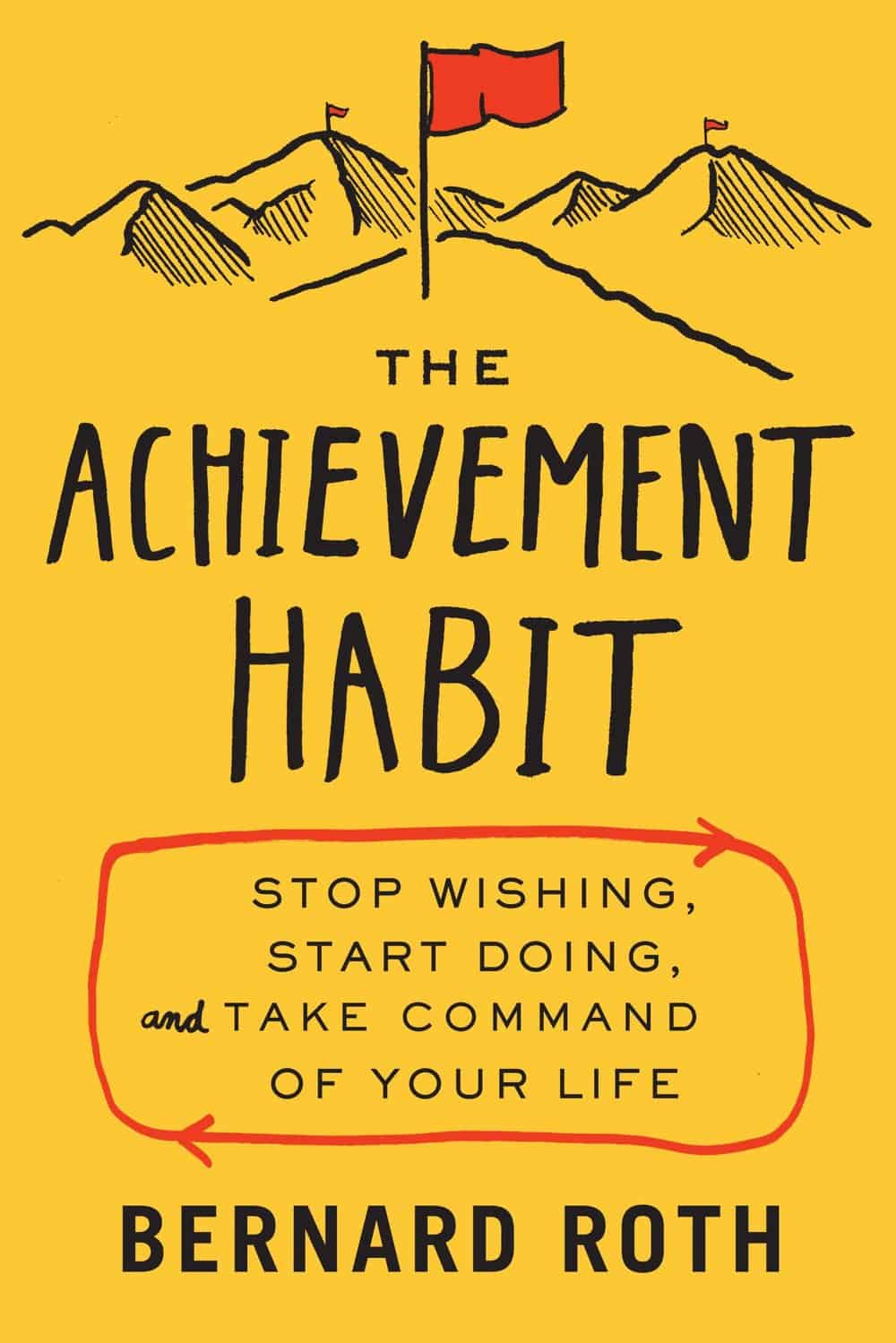The Achievement Habit

We get stuck. Although we have lofty goals, many of us fail to accomplish these goals. As a result, we find ourselves frustrated, but we’re often not sure what we can do to get ourselves unstuck.

The solution, according to Bernie Roth, cofounder of Stanford University’s d.school, is to apply design thinking to our lives. Design thinking is a set of practices used to solve design challenges in business, charities, and schools. Roth, author of The Achievement Habit, argues that we can also apply design thinking to our lives, improving our relationships and creating better versions of our lives.
In a course at d.school, Roth asks students to consider their goals. They are graded on a simple project: to do something they have wanted to do but have never done, or to handle something that is a problem in their lives. If they finish, they pass; if they don’t, they don’t get credit.
According to Roth, most of the reasons that we don’t achieve our goals or solve difficult problems is because we face barriers of our own making. We sabotage ourselves. The solution is a set of practices that will help us achieve our goals, solve problems, and focus on the things that matter. We can, for instance, realize that we assign meaning to our successes and failures. We can stop offering reasons to justify or rationalize our behaviors, and instead take responsibility for our actions. We can give careful thought to identifying our real issues and goals, and use a set of creative practices to make progress.
Roth gives practical advice on how this works, and how it affects the way we work individually and in our teams. I appreciated his advice on wide-ranging topics: reassigning meaning to events in our lives, making the familiar unfamiliar, accepting risk when the odds are against you, reframing criticism, giving constructive criticism, building flat teams, and more.
I read this book because I appreciate design thinking, and how it’s influenced products I like, and solved difficult problems. Books like The Art of Innovation and Creative Confidence, and resources like The Human-Centered Design Toolkit, are fascinating to me. I’m intrigued by how design concepts can be applied to life and ministry.
Of course, I didn’t agree with everything in this book, nor did I expect to. I still found it valuable. I’d heard about d.school, and I’m glad to read a sample of its teaching. Design matters, and The Achievement Habit helped me think about the importance of design in life and ministry.
More from TheAchievementHabit.com | Amazon.com






